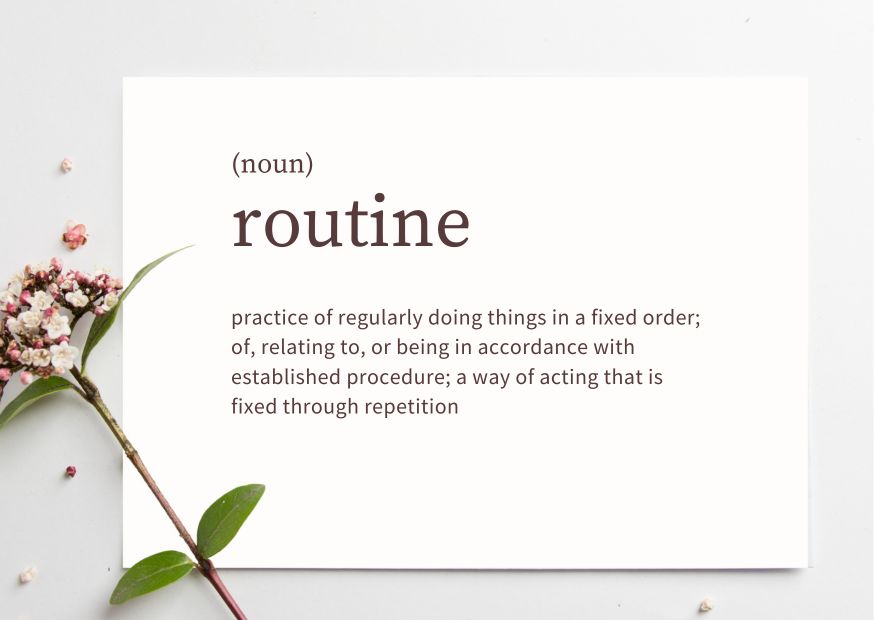Routines often get a bad rap, being labeled as dull or monotonous – but that’s not always the case.
Embracing routines can be a transformative tool, especially for women over 50 seeking to empower themselves and manage their dynamic lives more easily and gracefully. With the current climate of our society and our world, a little more ease and grace isn’t something to reject out of hand.
The Professional Benefit of a Good Routine
Firstly, routines are incredibly effective in a professional context. When teams have clear routines, it fosters a harmonious working environment.
Each member knows their role and what they need to accomplish, leading to smoother project execution and a shared sense of purpose.
The Benefits of Routines in Human Society
Similarly, routines play a vital role in our societal structure.
Consider traffic laws as an example of societal routines. The rule to stop at a red light is a routine that, when followed, significantly reduces accidents and chaos on the roads.
This reflects the broader benefit of routines in creating order and predictability in our lives.
How Routines can Impact and Benefit Your Personal Life
In your personal life, routines can be impactful.
Parents often teach their children how to establish routines through regularly scheduled chores, which are more than just household tasks – they’re lessons in responsibility and help them develop a solid work ethic.
Teaching children the value of completing tasks and earning rewards, like an allowance, helps them to realize the value of their efforts and that their energy can be used to bring good things into their lives.
Financial Routines and Good Money Management
Financial management is another area where routines prove their worth, no matter what your income level.
Whether it’s paying bills on a specific day, as they come in, or setting up automatic payments that correspond to a regular pay cycle, establishing a routine in financial matters can lead to greater control and peace of mind.
Planning ahead and creating a regular routine for savings and investing brings bigger benefits in the long run. Techniques like dollar-cost-averaging help make the most of your contributions to a retirement account, stock purchases, mutual fund investing, and deposits to a savings account for that new home.
There’s no one-size-fits-all approach with financial routines; the best one will suit your lifestyle and preferences, not only over the short term, but throughout your working life and beyond into retirement.
Keep it Flexible
However, it’s essential to remember that flexibility is key.
While routines provide structure, they shouldn’t be so rigid that they stifle spontaneity or personal freedom. It’s healthy and often necessary to break routines occasionally, like using weekends for special activities or vacations to step away from the daily grind.
In summary, routines are powerful tools that can help manage both professional and personal aspects of life. They bring order, efficiency, and predictability, allowing you to focus on what truly matters. But remember, it’s equally important to sprinkle in moments of spontaneity and relaxation to keep life vibrant and exciting.
Journaling Prompts to Encourage Respect for Routines
Use one or more of these prompts to start or deepen your personal journaling practice. Give yourself time to think about what the prompt brings up for you and explore your feelings on paper. If you need a journal, click HERE to see our available journals.
- Reflect on a routine in your life that brings you the most peace and why.
- How has establishing a routine improved your work-life balance?
- Think of a time when breaking a routine positively impacted your life.
- What routine would you like to implement in the next month, and what are your goals for it?
- Describe how routines have helped in managing your household or personal finances.






Routines are great and live by them. Once in a while you need to change them to exercise the brain and keep it active / healthy.